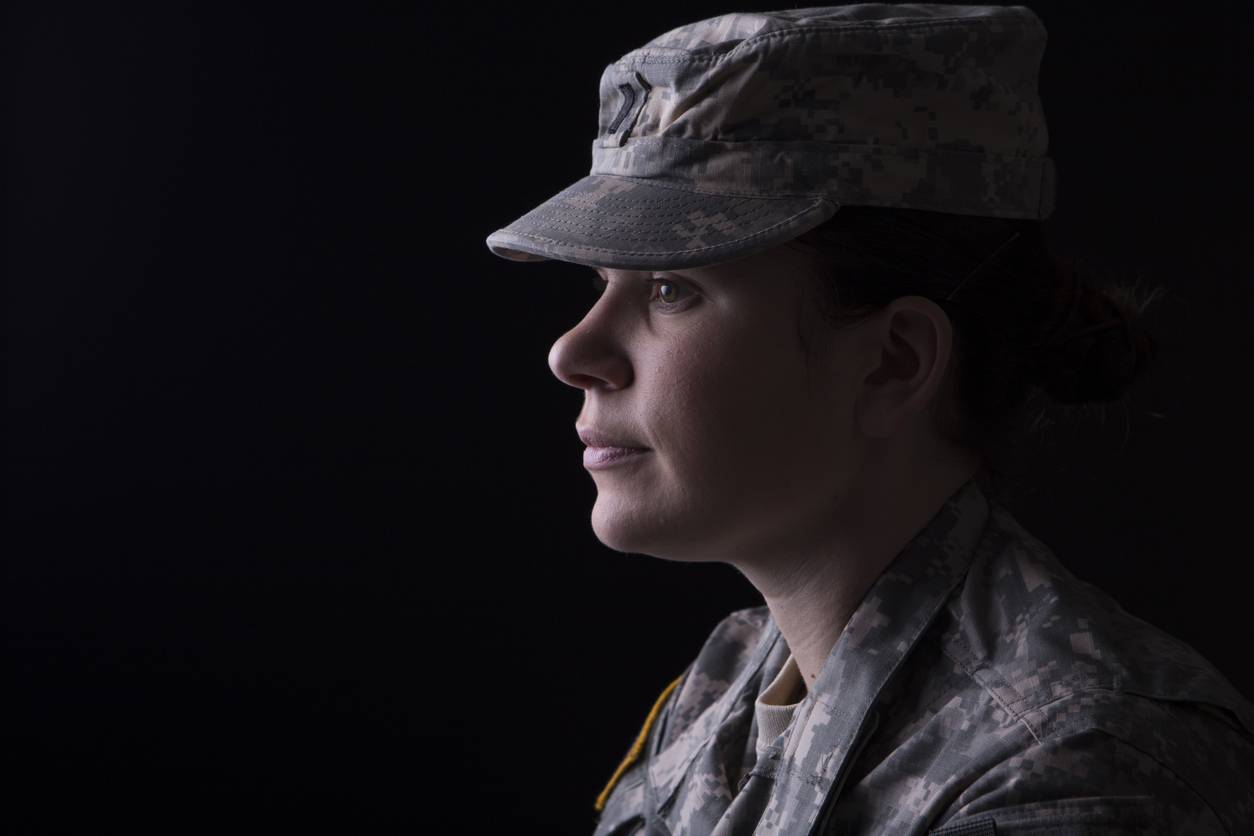But You Don’t Look Like a Veteran!

In June, the National Council on Aging (NCOA) hosted an online event facilitated by Sherman Gillums, Jr., a retired U.S. Marine who now serves as Chief Strategy Officer of American Veterans (AMVETS), the nation’s largest and oldest Congressionally-chartered veterans service organization. Gillums was joined by two female veterans.
Gena Byrd served in the U.S. Marine Corps from 1997–2016. An African American woman, Byrd said that people do not believe her when she tells them she served in the Marines. Most people have never met a female African American Marine, and they make wrong assumptions. Byrd joined the military just out of high school. Her years in the service taught her to be “built for stress” but it has taken both a mental and physical toll. Though she has a 40-year-old body, she shared that her body is worn down.
Byrd said veterans have seen their share of trauma, and it is her passion to support veterans, particularly female veterans, who often lack adequate supportive services. She started a community development corporation called Wholy Works. This nonprofit organization provides holistic health services within underserved communities and certifies Community Health Workers.
Mary Culley is an Air Force veteran who served for 20 years. Native American, Culley is Seminole and Creek, enrolled with the Seminole Nation of Oklahoma, and belongs to the Tom Palmer Band on her father’s side and is Wind Clan on her mother’s side.
Culley joined the military for the educational opportunity. She has had an impressive career, including NATO assignments under three Supreme Allied Commanders.
Culley is currently a specialist in the U.S. Department of Veterans Affairs Office of Tribal Government Relations. She manages a portfolio of relationships with tribal governments within the Continental, Midwest, Southeast and North Atlantic Districts and develops positive working relationships among tribal leaders, federal and state VA personnel, and partner agencies.
What Culley values most is serving her peers—individual veterans. She still finds veterans who have not applied for their qualified benefits. She also talked about not making assumptions—no matter what—about age, race, culture, or gender. People are complex and unique.
A particularly poignant perspective the two women shared is how everyone walks in many cultures, often at the same time. For example, if a woman is African American or Native American and a veteran in a leadership position, that woman needs to balance these cultures. One culture may teach you to be strong and independent while another tells you to blend in.
To everyone who serves or has served in the military, thank you for your self-less service.
Contributor Mary Pat O’Leary RN, BSN is a planner with Aging and Disability Services.
This article originally appeared in the November 2020 issue of AgeWise King County.
PEARLS for Veterans
 PEARLS—the Program to Encourage Active and Rewarding Lives—is a home-based counseling program that serves older (age 55+) veterans, their spouses, and spouse survivors who feel down or blue or have lost interest in doing things they once enjoyed.
PEARLS—the Program to Encourage Active and Rewarding Lives—is a home-based counseling program that serves older (age 55+) veterans, their spouses, and spouse survivors who feel down or blue or have lost interest in doing things they once enjoyed.
Aging and Disability Services is fortunate to have Suzet Tave, MSW, LSWAIC—a female Navy veteran—as a PEARLS Counselor. During COVID, Suzet provides counseling via phone instead of in-person. PEARLS is open to new referrals.
Read Suzet’s article, PEARLS for Veterans Supports Spouses Who Are Caregivers, in the March 2019 issue of AgeWise King County. For more information, visit the PEARLS webpage.
 Please join Aging and Disability Services in extending deep appreciation to Carl Kaiser, MSW, LICSW, a PEARLS counselor who will retire this month. Sometimes called “Mr. PEARLS,” Carl has been involved in PEARLS since it started as a UW Health Promotion Research Center study in the late 1990s. Happy retirement, Carl—you will be missed!
Please join Aging and Disability Services in extending deep appreciation to Carl Kaiser, MSW, LICSW, a PEARLS counselor who will retire this month. Sometimes called “Mr. PEARLS,” Carl has been involved in PEARLS since it started as a UW Health Promotion Research Center study in the late 1990s. Happy retirement, Carl—you will be missed!
![Aging & Disability Services for Seattle & King County [logo]](https://www.agingkingcounty.org/wp-content/themes/sads/images/seattle-ads-logo.png)